About
Precision medicine, so called personalized medicine, is “an approach to tailoring disease prevention and treatment that takes into account differences in people’s genes, environments and lifestyle”, according to FDA definition.
Innovative clinical trial designs, for example, platform trials, basket/umbrella trials are developed to support the development of precision medicine. Master protocol, one overarching protocol that allows simultaneously evaluation of multiple therapies or/and multiple diseases, has made these innovative clinical trial designs more implementable and is becoming to supplant classic trials, phase I, II, and III protocols in some therapeutical areas (e.g., oncology).
In addition, precision medicine revolves around a multitude of different data sources and types (e.g., ‘omics’ data, real world data (RWD), which ask for more advanced statistical methodologies.
This opens the door for the application of Artificial intelligence (AI)/Machine learning (ML) to unlock the potential of these data and advance precision medicine.
The 14th edition of European Statistical Forum (ESForum) aims to inform on current status of methodology and regulatory aspects and to discuss the future direction of clinical trial design in the era of precision medicine and to debate the role of AI/ML and RWD in the rapidly changing landscape of clinical trial designs.
This will include presentations focusing on:
- Current landscape of clinical trial designs in the era of precision medicine
- Regulatory views on methodology used in precision medicine
- Recent development of AI/ML in advance precision medicine development
- The role of RWD to fuel precision medicine
- Case studies and practical approaches
Scientific Board
Jens-Otto Andreas - SSI Business Operational Excellence Senior Lead at UCB Biosciences
Lisa Comarella - Senior Director Biostatistics at Alira Health
Marco Eigenmann - Principal Biostatistician at Novartis
Victoria Strauss - Therapeutic Area Methodology Chapter Head at Boehringer Ingelheim
Who should attend?
This statistical conference is addressed to statisticians, pharmacometricians, data scientists, regulatory affairs specialists, academia and other experts interested in the field belonging to: Pharmaceutical, and Biotechnology companies, CROs, Universities/Hospitals, Academic Research.
Programme
Speakers

Jens-Otto Andreas
Jens-Otto received a diploma in Mathematics in 1993. In 1994 he started his career in Biostatistics at Grünenthal GmbH in Aachen. Here he worked in several therapeutical areas like gynecology and pain. Later on he became a specialist in the Phase 1 area. In 2005 he started to UCB (legacy Schwarz Pharma) as a Project Biostatistician in Phase 1. With the restructuring at UCB in 2008 Jens-Otto became the Head EU Biostatistics supervising Biostatisticians located in Monheim (Germany) and Brussels. Since 2016 he is also the Head of the East Asia Biostatistics of UCB. UCB’s key indications are CNS and immunology. From 2017 to 2019 Jens-Otto was the Head of Statistical Sciences – Bone & New Diseases at UCB Biosciences GmbH. Currently Jens-Otto is holding the position of a SSI Business Operations Excellence Senior Lead at UCB Biosciences GmbH.
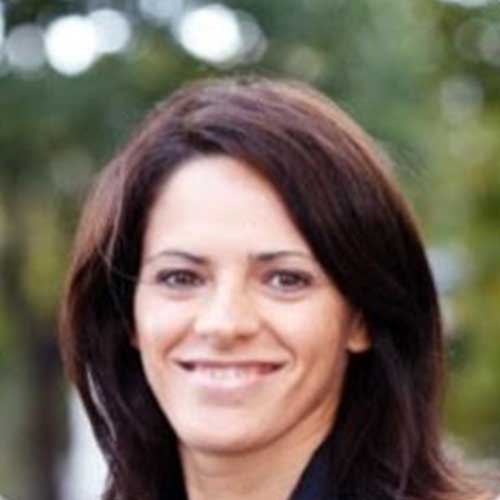
Lisa Comarella
Lisa has over 20 years of experience in the clinical research industry. In her current role, Lisa is responsible for the management of the biostatistics team including the development professional growth, supervision of the quality of deliverables and outputs, as well as the management of processes for biostatistical activities to ensure they are up-to-date and aligned with the business need and regulatory requirements. Lisa’s areas of expertise include DSMB support, submission studies, integrated summaries, writing Statistical Analysis Plans and contributing to Clinical Study Reports. She has worked in a variety of therapeutic areas and has particular expertise in respiratory, cardiovascular, infectious diseases and oncology. She is a committee member of ESF (European Statistical Forum) and is also a member of several associations including PSI (Statisticians in the Pharmaceutical Industry) and EFSPI (European Federation of Statisticians of the Pharmaceutical Industry). Lisa has been a contributing author on scientific articles in cardiology, diabetes and oncology.
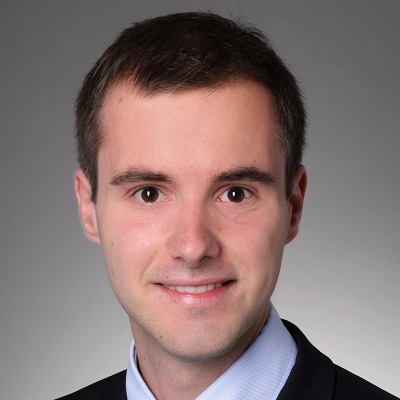
Marco Eigenmann
Marco Eigenmann started his career in the pharmaceutical industry joining Novartis in 2020 as a Principal Biostatistician in the Immunology, Hepatology and Dermatology (IHD) department. In his role, Marco has been supporting several programs in late phase development (phase 2b to phase 4) across the Dermatology and Rheumatology therapeutic areas. Marco holds a Master degree in mathematics from ETH Zurich and has a PhD in statistics from the same university. During his PhD Marco specialized in causal inference and graphical models. Marco’s current interests include the development and standardization of causal methodologies in drug development, effective scientific communication using interactive tools such as R Shiny, and machine learning.

Victoria Strauss
Dr Victoria Strauss is TAM Chapter Head, Global Biostatistics & Data Science in Boehringer-Ingelheim, and a honorary research in University of Oxford.She specifies in real world evidence methodology including incorporating real world evidence methodology into clinical trials, propensity score, trial emulation, bias minimization in real world data. Prior to join BI, she was the lead Statistician in pharamaco and device epidemiology research group in Centre for Statistics in Medicine, University of Oxford. She is a faculty member of “ISPE pre-conference course: machine learning ” and was a co-lead in the UK NIHR routine data SIG.

Werner Brannath
Biography available soon

Guillaume Desachy
Since graduating from ENSAI (Biostatistics M. Sc.) 10 years ago, Guillaume has been immersing himself in precision medicine.
Data-driven, he is passionate about answering scientific questions and making sure we convey the right message to stakeholders, both internally & externally.
He feels very fortunate to have had the chance to work with various kinds of OMICs data and leverage the power of biomarkers to strengthen drug development.
He also feels incredibly lucky to have worked in a diverse set of settings, be it in academia (UCSF, U.S.), in a biotech (Enterome, France) or in the pharmaceutical industry (BMS, Servier & AstraZeneca, France & Sweden). He now works as a Statistical Science Director for AstraZeneca in Gothenburg, Sweden.
Apart from his day job at AstraZeneca, Guillaume teaches a course about OMICs data analysis at ENSAI (www.ensai.fr), is actively involved in the ENSAI alumni association (www.ensai.org) and is a mentor for Article 1, a non-profit organization promoting equal opportunity (https://article-1.eu/) and together with Nicole Krämer, he leads the EFSPI/PSI Biomarkers Special Interest Group.
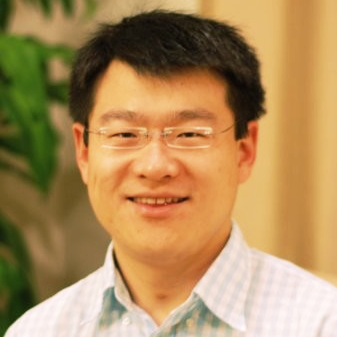
Lin Li
Dr. Li is a statistician and computational biologist by training with more than twelve years of work experience in statistical methodology development and analysis in the fields of biomarker biostatistics, precision medicine, and statistical genomics. His expertise includes biomarker statistics and omics data science with applications in drug discovery and development. Some of his work has been published in high profile journals. Dr. Li is US Head of Statistics and Data Science at PharmaLex, a global specialized service provider for the pharma, biotech, and MedTech industries. He received his doctoral degree in computational biology from Cornell University and was a Postdoctoral Research Fellow in the Department of Biostatistics at Harvard School of Public Health.
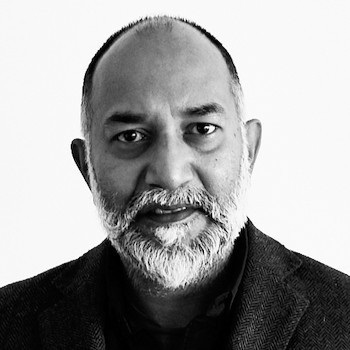
Rajat Mukherjee
Biography available soon

Oliver Pain
Oliver Pain is a biostatistician within the Statistical Sciences and Innovation Predictive Analytics team at UCB Pharma. He also holds a Sir Henry Wellcome Postdoctoral Research Fellowship at King’s College London. Oliver’s research mainly leverages results from genome-wide association studies (GWAS) and Bayesian machine learning methodology to calculate ‘polygenic scores’ predicting complex health-related outcomes. Currently at UCB, Oliver and colleagues have developed the ‘Polygenic Score Knowledge Base’ – a platform for integrating genetic data into clinical trials to improve their efficacy and efficiency.

Kathryn Rough
Dr. Kathryn Rough is an Associate Epidemiology Director at IQVIA with over 13 years of experience in healthcare research, including 4 years of creating deep learning-based health technologies at Google. She has extensive experience with machine learning/deep learning, evaluation of health technologies, comparative safety/effectiveness studies, observational research, and methods for causal inference. Kathryn was one of the core development team members for the Apple/Google privacy-preserving COVID-19 Exposure Notification System. She also worked at the Division of Pharmacoepidemiology and Pharmacoeconomics at Brigham and Women’s Hospital, conducting comparative safety research using health insurance claims data. She received her doctoral degree in Epidemiology from Harvard University, with concentrations in pharmacoepidemiology and infectious disease.
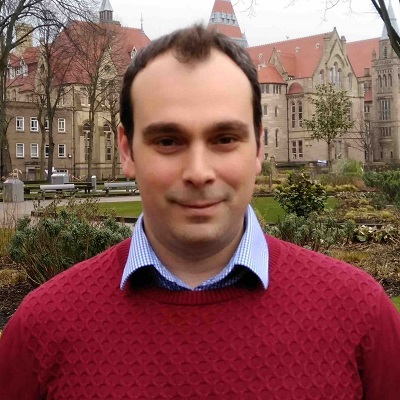
Konstantinos Sechidis
Konstantinos (Kostas) is an Associate Director of Data Science in Novartis’ Advanced Exploratory Analytics group and his main areas of interest are machine learning based biomarker discovery, subgroup identification, and development of digital endpoints. He obtained his PhD in statistical machine learning from the Department of Computer Science of the University of Manchester. Afterwards he spent many years as post-doctoral researcher on developing novel methodologies for analysing: self-reported epidemiological data with Manchester’s Health e-Research Center, clinical trials data for personalised medicine with AstraZeneca and digital healthcare data for digital biomarker development with Roche. He is member of the editorial board of the Machine Learning Journal (MLJ) and vice-chair of the technical committee on Statistical Pattern Recognition Techniques of the International Association for Pattern Recognition (IAPR) and more information about his work can be found at: https://sechidis.netlify.app/
Contacts
Valeria Quintily
Sr. Scientific Project Manager
valeria.quintily@lsacademy.com
Ilaria Butta
Events and Training Manager
ilaria.butta@lsacademy.com
Registration Fee
€ 590,00* Early Bird fee until 02 November 2023
€ 710,00* Ordinary fee
€ 410,00* Freelance, Academy, Public Administration
Fee includes: seat at the conference, copy of presentations of Speakers who allow the distribution, networking lunch, coffee breaks, organisational office assistance, certificate of attendance.
* for Italian companies: +22% VAT
Useful Information
The conference will take place at:
NH Collection München Bavaria
Arnulfstr. 2, 80335 Munich
The NH Collection München Bavaria is located in the city center next to the main train station, and only steps away from the old town, it offers easy access to all of Munich, making it an ideal base for business visitors.
From the airport
Train: Take the S1 or S8 from the Munich Airport, which departs every 5 – 10 minutes, to get to the central station “München Hauptbahnhof”. From there, please alight in the direction of Arnulfstraße. The hotel is located on the opposite side of the street. Total trip time is around 45 minutes.
Taxi: It is a 30-40 minutes trip
From the train station
München Hauptbahnhof: From there, please alight in the direction of Arnulfstraße. The hotel is located on the opposite side of the street.
Closest metro station: München Hauptbahnhof
COVID-19
LS Academy is aware of the evolving impact of COVID-19 and is committed to offering safe and secure face-to-face courses and conferences. From physical distancing, protect, detect, cleaning and hygiene. LS Academy ensures that all our events are conducted in accordance with official government guidelines and regulations, understanding that these measures may vary and change as the situation evolves.



